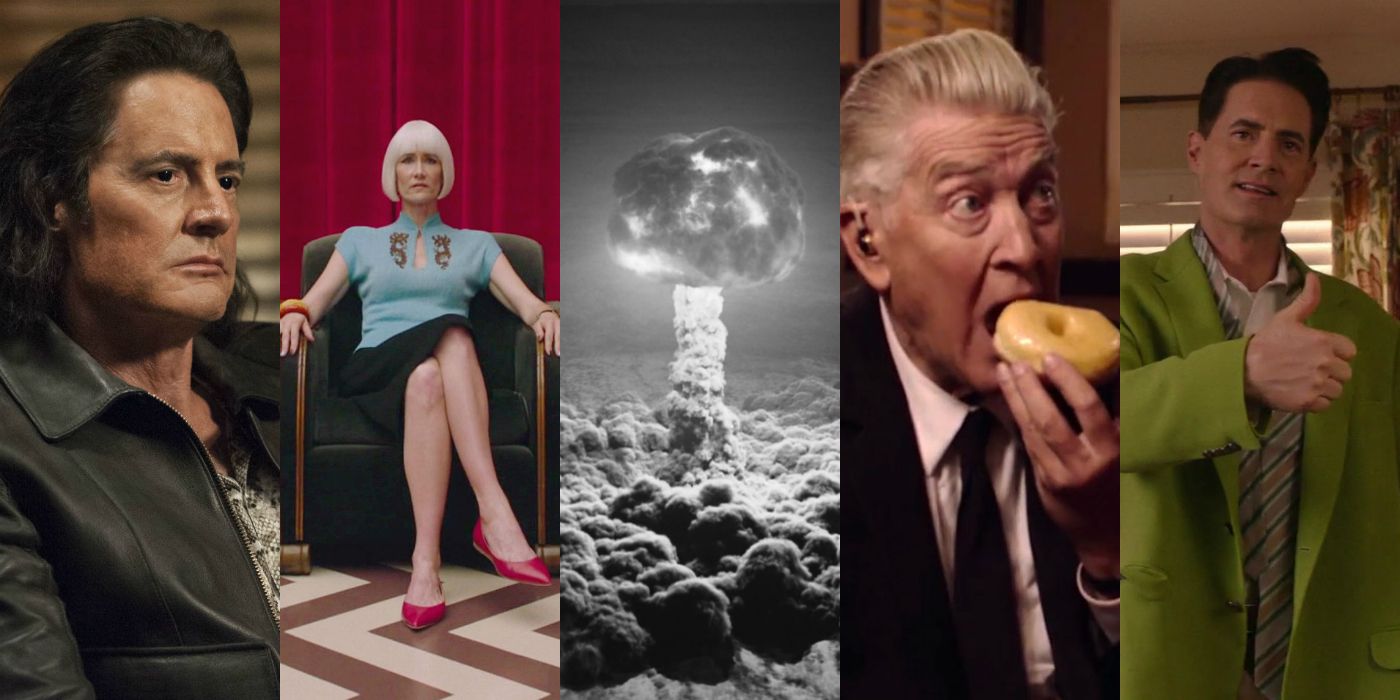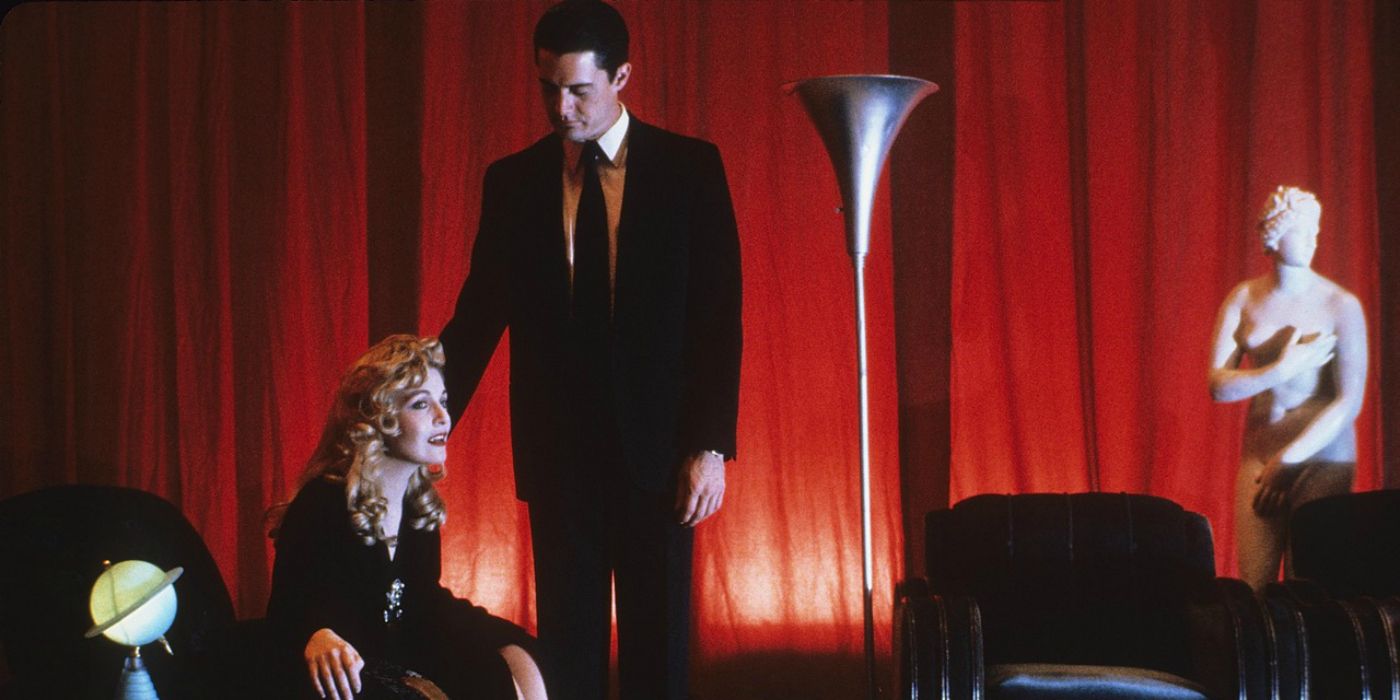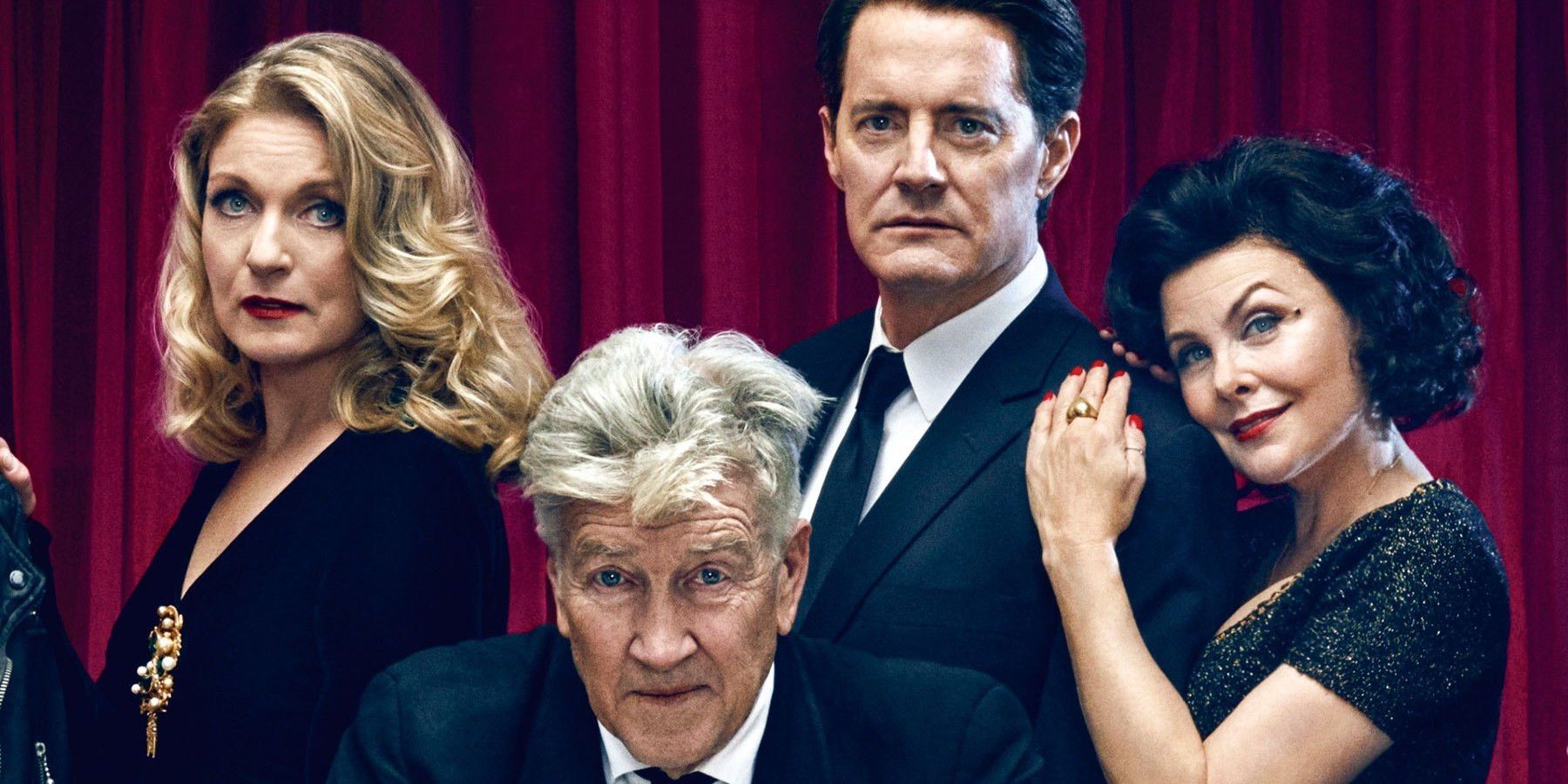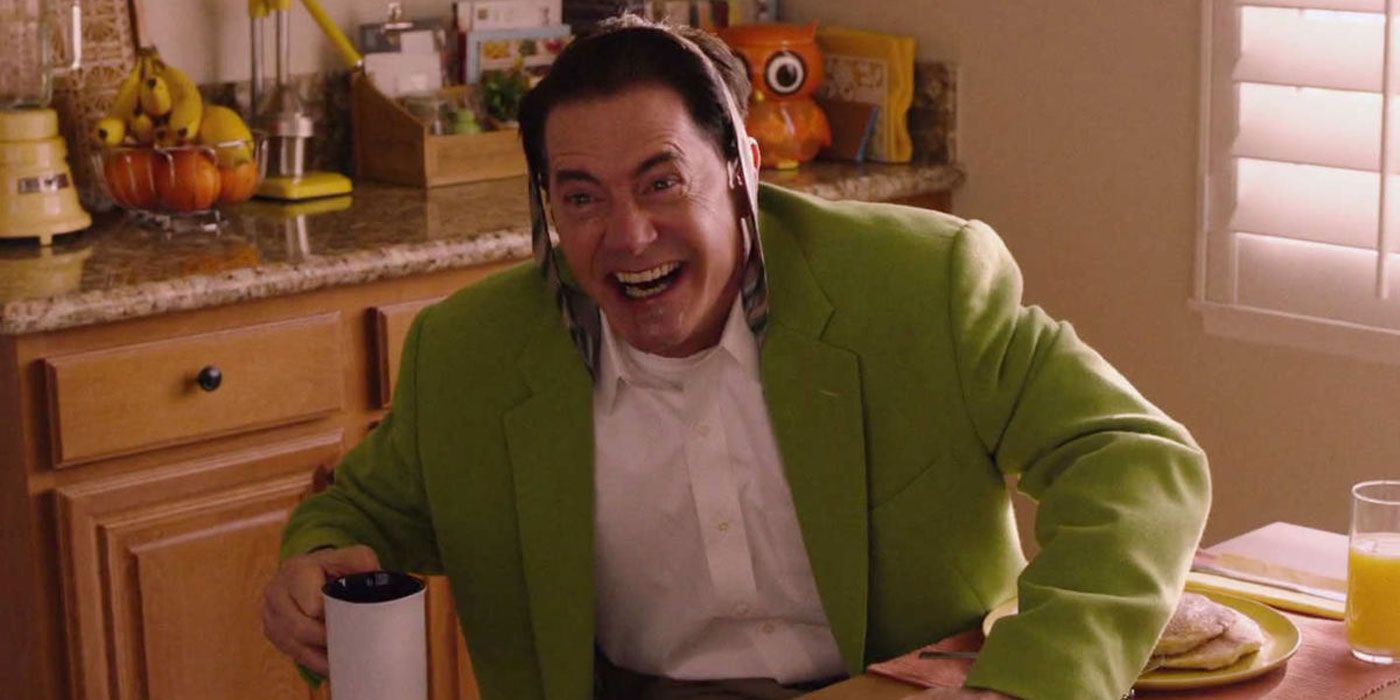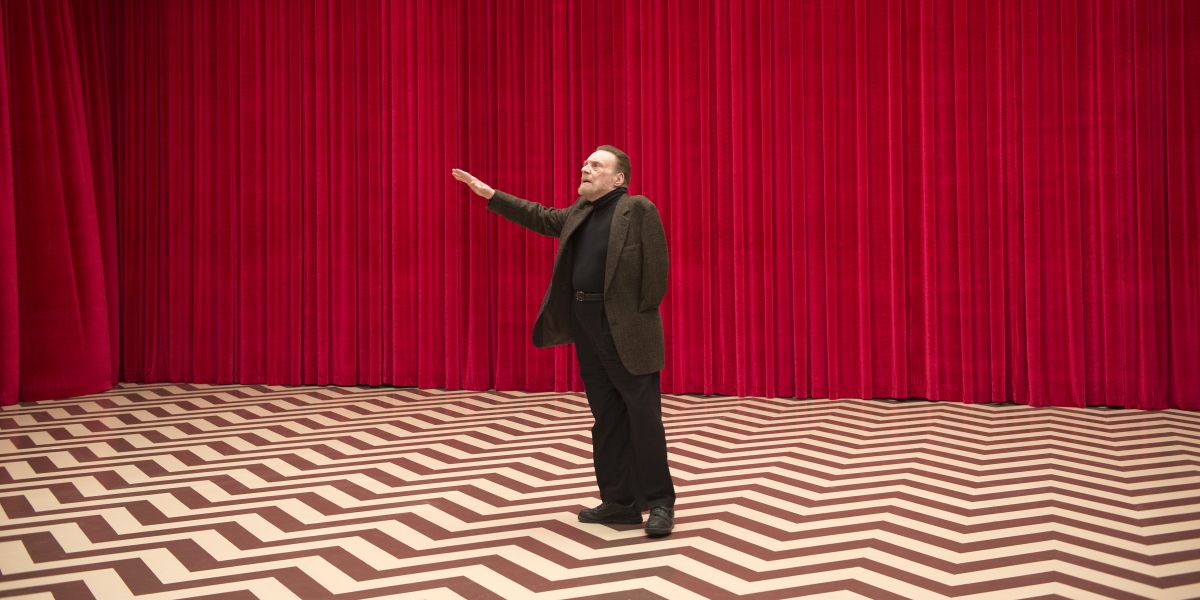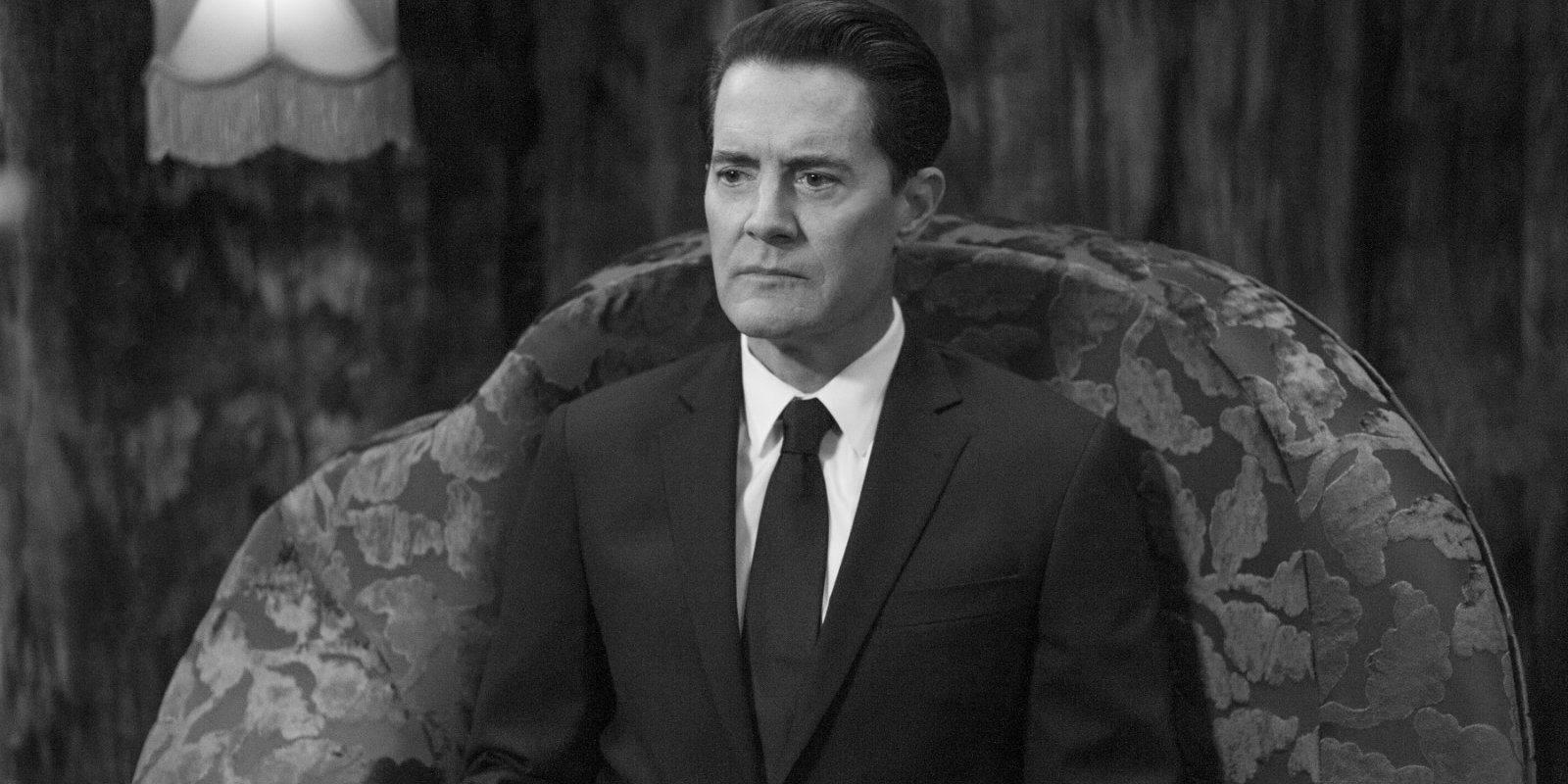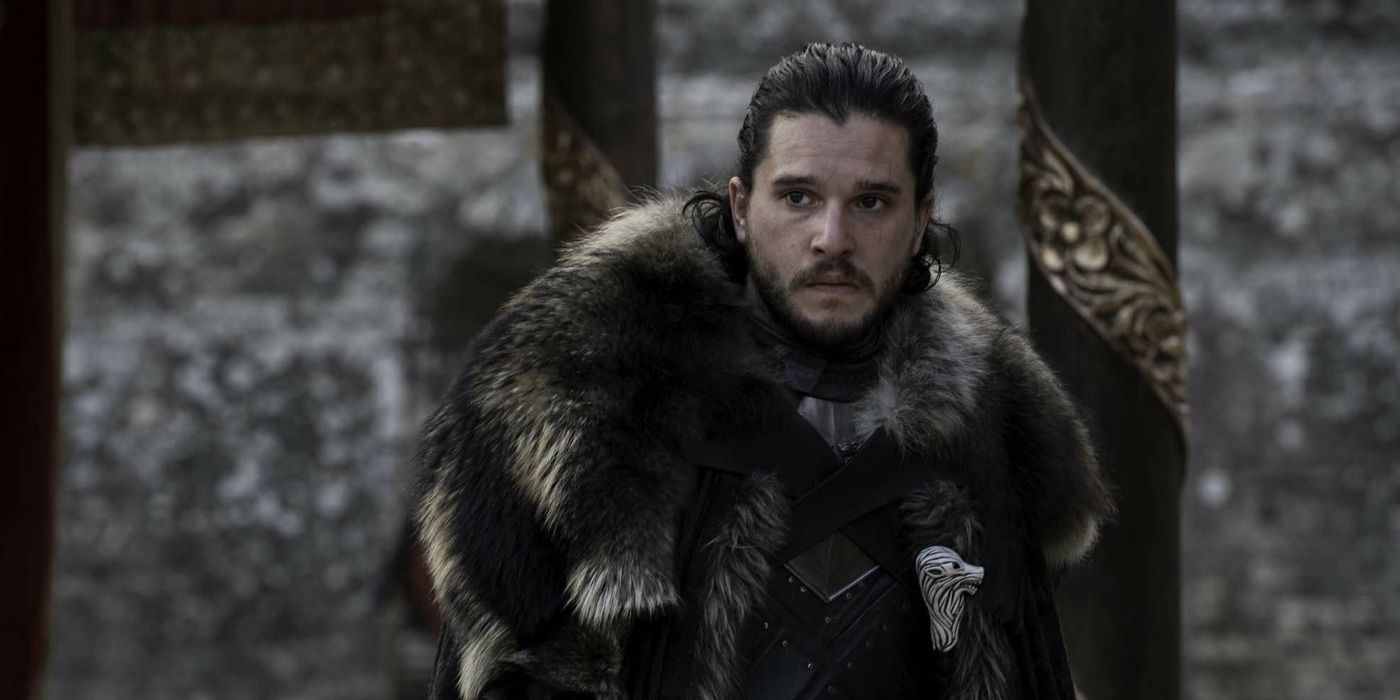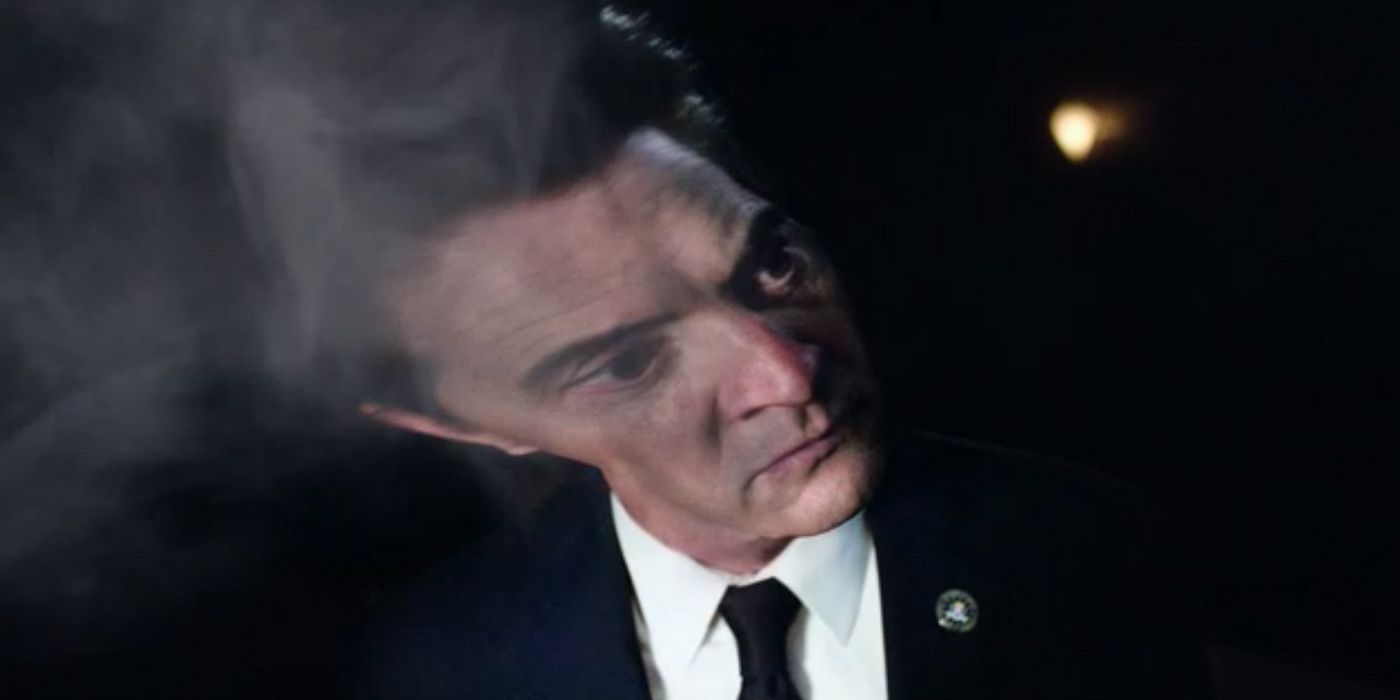Twin Peaks: The Return has been some of the weirdest TV ever produced. It's David Lynch at his most unrestrained and unforgiving, while also an incessant, targeted subversion of what audiences expect from modern television. It's the third season of a show that spent weeks avoiding its namesake and cares more about the once-reviled prequel movie. It's a horror and a comedy, sometimes at the same time. Monica Belluci makes a cameo as herself and it may be the most important scene. It stars Kyle MacLachlan three times (and everyone else in alphabetical order). And the finale felt like an entirely different show.
But, now it's all over, we can make a grander statement: Twin Peaks: The Return made sense.
Did everything get answered? No. Is that ending made to spawn a literally neverending debate? Yes. Cutting through all that, though, it's a show we can understand. Let's take a deep dive.
The Original Twin Peaks (Mostly) Made Sense (This Page)
The Original Twin Peaks (Mostly) Made Sense
Sense and Twin Peaks rarely come together in the pop culture lumber factory. Sure, by modern standards its seven-episode first season has a pretty straight throughline and follows a suitably sprawling set of characters, but that was challenging in the era of episodic TV. A second year only upped the ante; the central mystery was solved and so its second half began to splinter off in a half-dozen different directions, all bridging the real and metaphysical plane.
The reasons the show was canceled are many - quality, writing shifts and scheduling all played their part - although the affronting bizarreness helped accelerate them all. The likes of Homer Simpsons may have found it "brilliant", but having "absolutely no idea what's going on" is poison to weekly viewing.
Related: Why Twin Peaks Season 2 Is Underrated
Twin Peaks: Fire Walk With Me, a movie that was half prequel explaining Palmer's death, half mythology expansion that attempted to deepen the lurking threat of the Black Lodge and the purpose of Cooper's FBI division, was savaged on release, primarily because it was neither a simple explanation of the show nor a complete standalone.
But, as we already said, looking back it's not exactly incomprehensible. Sure, the later parts of Season 2 when Lynch left the regular writing staff struggled from the same problems all his imitators do, yet at its core Twin Peaks is a clearly focused story of one chip in the facade of Americana being pulled back to reveal true evil. It's part metaphor, part soap, all Lynch. It was different (and due to its impact being a distillation still is) but is hardly affronting. That it was the peak of strangeness really only highlights how much TV has changed in the past 27 years.
The Return is much weirder. Knowing the previous 30 episodes and movie certainly helps but the decision to give this its own title - rather than the often used yetincorrect "Season 3" - was telling. This isn't the same show as the one we got in the 1990s. Fitting of us being in the midst of aptly named Peak TV, it's a more ambitious descendant of the game-changing original series. But we're still dealing with something different to the present norm, rather than something truly ethereal.
To be clear, we're not going to be providing a full explanation here - don't worry though, Screen Rant will have you covered with a great series of enlightening articles. What want to look at why The Return ultimately made sense.
The Return Was Critiquing Modern TV
So what was Twin Peaks: The Return? That's a question too big for a single article, but keeping things simple there's a couple of key textual and thematic points we can hone in on.
In part, it's playing with modern television conventions - in this case the serialized epic - as much as the original was the tropes of the 1980s. The premiere opens with Dale Cooper in the Black Lodge and sets up strange murder comparable to Laura Palmer's, but in its third episode flings off the gown of cohesion and goes into another dimension, trapping Coop as child in adult's clothing Dougie and leaving the crime case as a background concern. From then on it was unpredictable and constantly undermining whatever expectations it established: Cooper's full return was constantly teased via coffee, cherry pie or constantly subverted FBI discovery, then occurred almost at random care of him accidentally catching Sunset Boulevard; Audrey Horne was absent for the first dozen episodes and her is-she-isn't-she state was repeatedly flipped; Richard Horne was introduced and teased as the son of Audrey and Mr. C, but this was only confirmed after his sudden proxy death.
Related: Kyle MacLachlan Knew Twin Peaks Would Be Challenging For Some Fans
Before the show hit, there was some debate in the TV recap community about whether Lynch's 18-hour movie cut into sixty-minute parts would work in the obsessive scouring of online criticism that has proven so fruitful for Game of Thrones and Westworld. And, in short, while there's definitely clues and easter eggs hidden week to week, rampant theorizing was a waste of time; the misdirection levels are so high and weeks go by with subplots un-nurtured that focusing on plot over meaning is fruitless (it's telling that some outlets that hit the ground running later dropped recapping the show altogether). The Return was a treatise on weekly consumption of TV over of binging for spoilers. Indeed, you could have the entire thing spoiled and learn nothing.
But It Was Also Continuing The Black Lodge Plot
All that said, there was a clear underlying narrative to all the spiraling weirdness. Cooper's escape, becoming Dougie, Mr. C's quest and everything linked into it was advancing the rules of the Black Lodge set up in the first two season and movie. The Black Lodge was a representation of the evil lurking beneath Twin Peaks' surface, and with The Return Lynch appeared to be trying to show where it came from, what happens when it manifests, and ultimately Cooper's futile-but-relentlessly-noble attempts to beat it.
Crucially, the series was showing what the impact of the lodge was as opposed to giving explicit details on something unquantifiable; the finale was all about trying to free Laura Palmer despite her confines always being obscure. It's theme over plot (a good comparison point is what Ridley Scott did with Alien: Covenant) while still giving enough details to actually make the point.
There's a lot more going on in Twin Peaks: The Return, but we'd say that's the essential parts, best seen in how it used primary actor Kyle MacLachlan. Dougie represents the subversion of TV, Mr. C is the twisted plot, and Cooper himself is the consolidation of these - hence why the finale was the weird delight it wound up being, both a send up of resolution and a deepening of the mythology.
The show has clear goals that we've been able to find irrefutable evidence of in the text. Now let's look at why it works on the bigger picture.
Why The Return Is Good Storytelling
When we talk about The Return making sense, we're not necessarily meaning tightly wound loose ends or having answers to every dangling question. Why did Steven Burnett shoot himself in the woods? What real purpose did Jacobi's gold shovels serve? Where is Audrey? Why is David Bowie now a boiler? You can explain it if you reach - the answers are fear, fixing unrequited love, a lodge dimension (presumably) and real-world practicalities respectively - but that's not the point. What we're really talking about is storytelling.
And, while unconventional, Twin Peaks is a cracking story. Yes, it's more about the experience than it is the narrative, but that experience is still a story. Lynch is taking you on a journey with a medium-defined beginning, middle and end, so has to craft some sense of momentum and development. Boy does he.
Take Episode 8, undeniably the show's greatest technical achievement and also its most out-there hour. Told in four parts, it's a sensual assault of descending bizarreness, yet each step has a purpose: we see Mr. C preserved by the creatures of the Black Lodge; get a tonal establishment from Nine Inch Nails; then "flashback" to the creation of BOB, an evil born of America's quest for self-destruction; and finally have a small vignette revealing a deeper presence. That's an exposition episode by any normal measure, the only distinction is that the development here occurs more on a feeling level than a pure factual one.
Even the ending works. Episode 17 resolves the main narrative threads of the season and the show, leaving Episode 18, the finale, to cap it off with something completely new; a folly adventure into a new dimension where Laura Palmer survived. Cooper's final words asking about the year and "Laura" suddenly screaming are going to be debated for longer than "How's Annie?", yet it thematically flows and any cliffhanger nature is (unlike Season 2) totally intentional.
The Game of Thrones Comparison
To perhaps best show this, it's worth comparing to Game of Thrones. HBO's fantasy epic ran its seventh season opposite Twin Peaks during the middle of the run and certainly won the ratings battle on the early nights when the pair were pitted against each other, yet its critcial attention was mixed. As the truncated seven-episode run wore on, repeated complaints about its lazy, seemingly-randomized storytelling become prominent; by the time the Night King took mount on his newly converted dragon to bring down the wall we were left with a host of ignored, unanswered questions that take giant leaps of logic to consolidate (and will likely not be answered otherwise).
Related: How Did Game of Thrones' Storytelling Get So Bad?
Now, for all its unexpected plot turns and genre subversion, Game of Thrones fits the mold of traditional narrative storytelling - the plot moves forward in an A-B-C manner - so these flubs are breaking the form. We would thus argue Twin Peaks ultimately made more sense than Thrones this year - HBO's baby is more confusing against what it set itself up to be, whereas Showtime's is faithful to its core and traceable all the way back to that 1990 premiere.
Conclusion: Twin Peaks Makes Sense Because It's Twin Peaks
A common addage amongst Lynch fans is that his films work because their flow is evocative of dream-like experiences we've all had (that's why Episode 8, especially the A-bomb sequence, is so effective), and with The Return the famously closed filmmaker essentially canonized that; the idea of being lost in a vision, of forgetting things in all but the subconscious, or being adrift from the norm as if in someone else's dream, runs through the show, making any overt weirdness not only purposeful but an evocative part of the whole.
We'd point towards Cole's dream of Monica Bellucci as the most fourth-wall breaking case of this, although it's worth stating the finale is basically Cooper experiencing what the viewers have - he too is now in a world so close to the truth and yet populated like a nightmare.
The best way to put it is that Twin Peaks is dreamlike, following fluid rules logical within its own confines that are nevertheless different to the real world. It makes sense in its own definition.
-
Weird doesn't mean nonsensical. Understanding doesn't mean total comprehension. And Lynch's magnum opus above all else obeys its own rules.

